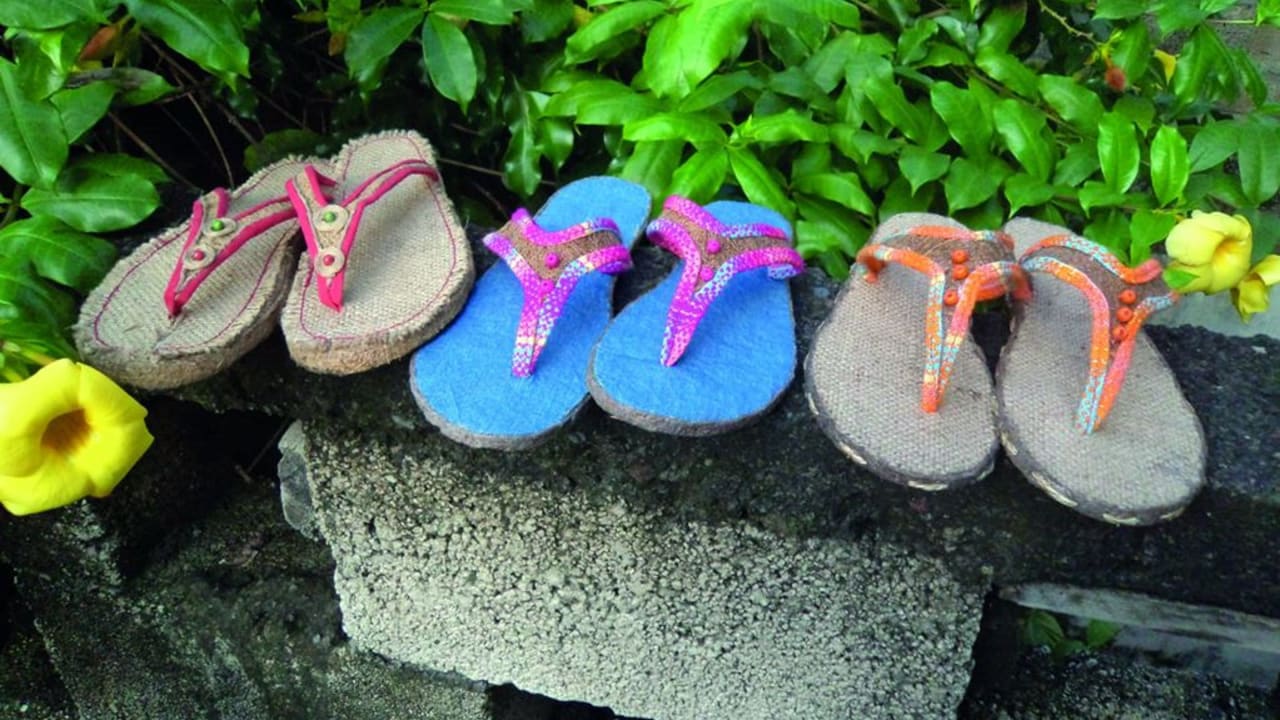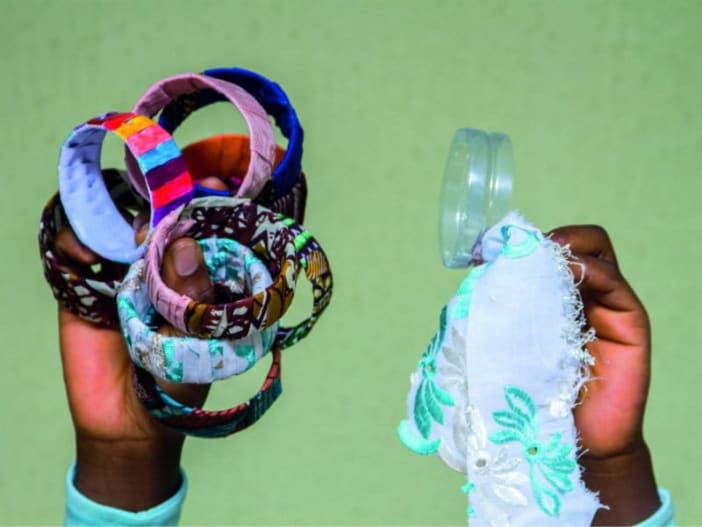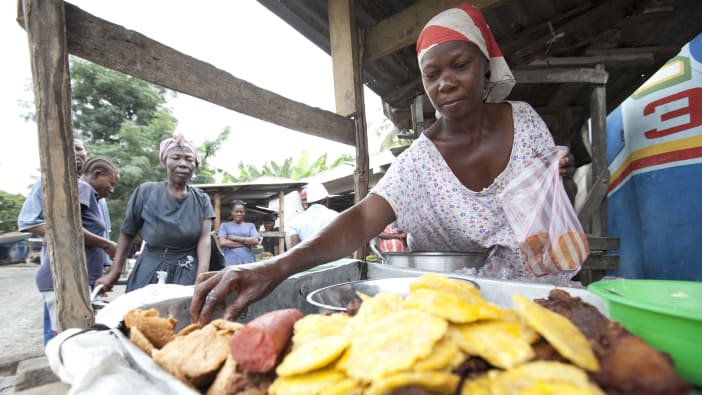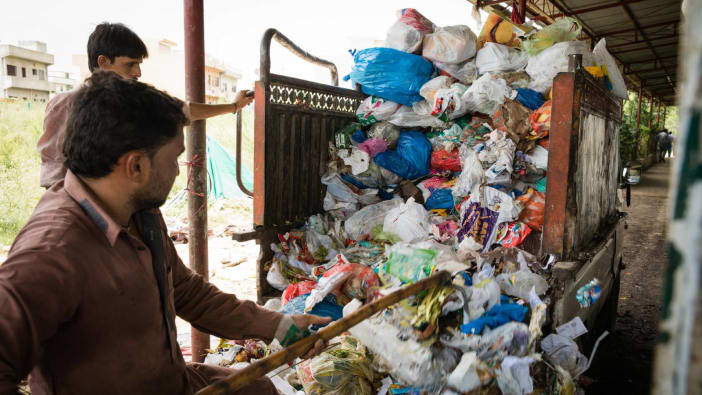In the developing world there is a huge and growing waste problem. Currently, 9 million people die every year due to the mismanagement of waste and pollutants. That is 20 times more people than die of malaria. If we ignore this waste problem, we will miss a key opportunity to save lives and create jobs.
The circular economy is a new way of thinking about the world. Our current way of doing things is linear: we take natural resources, make items, use them and then throw them away. At this end point all the energy, water and materials used in making the items are thrown away too. The circular economy, however, keeps resources in use for as long as possible. Many items, such as cars, can be repaired or rebuilt rather than being thrown away when they break. This creates new job opportunities and reduces health-damaging waste.
Discussion questions
- What happens to waste in our communities?
- Are there any resources considered ‘waste’ that we could turn into business opportunities?
Terra Coco, Guatemala
by Mario Morales

In 2010 there was a flood on the south coast of Guatemala, near where I live. Local churches came together to consider how we could support the communities affected. We realised we had a resource right there in front of us: the coconut. There were discarded coconut husks all around our communities, especially after the floods. Coconuts were very little used and full of exceptional biological qualities.
From the beginning, I had great faith in this often discarded product. I set up a social enterprise called Terra Coco, using coconuts to make a range of eco-friendly products. We use coconut fibres to make shoes, sandals, handbags and land nets for preventing erosion. The process of extracting the fibres produces a nutrient-rich mulch, which we use in community gardens.
The ‘explosion’ of the ecological market is a great opportunity for Terra Coco.
People look favourably on products that are ecological, biodegradable, ethical and above all beautiful. A huge new opportunity for us is coconut oil. It is very commercial, since both the pure oil and the soap and shampoo derived from it are very well received by the public. We are producing oil and exploring soaps and shampoo.
At Terra Coco we employ vulnerable families in need of work, including women and young people. Right now, God needs us to share a practical gospel. We are not interested in just making another business. We want to create an enterprise of Christ.
Mario Morales is a graduate of Tearfund's Inspired Individuals programme.
Web: www.facebook.com/terracoco.esc
Email: [email protected]
To read another case study from Nigeria, click here.









